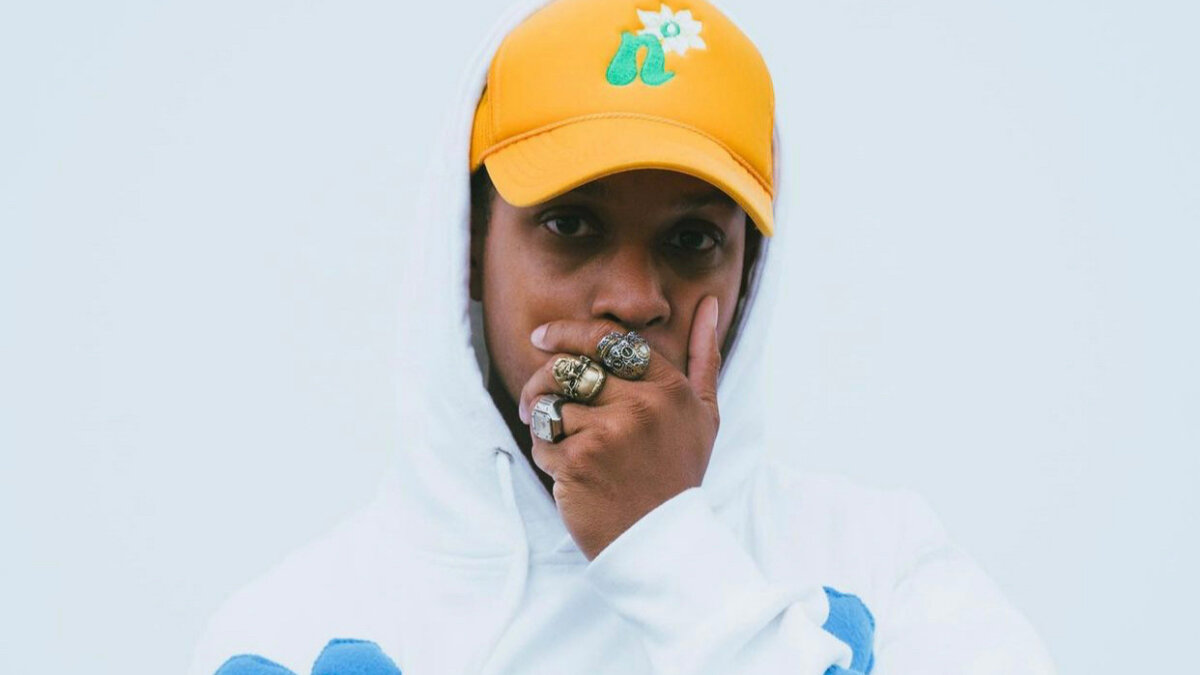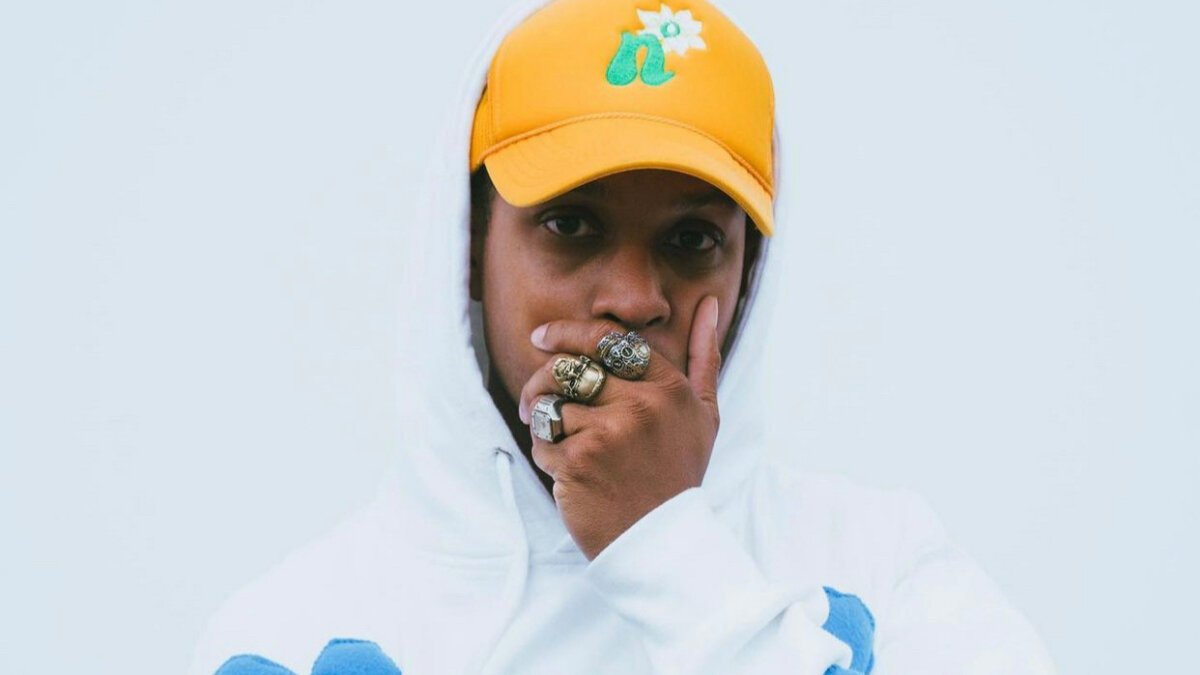Pell is Floating While Dreaming Again

After seven years, the New Orleans-based rapper returns to the sound of his debut album and it pays off again.
Floating While Dreaming earned Pell national press when he released the album in 2014. A lot of that attention came because he had the right album at the right time. Hip-hop had become pop music’s lingua franca by that point, and his slightly spacey, textured beats were tailor made to live in the space where the indie rock and indie rap circles overlapped.
Since then, he has made honorable, credible work that stays true to his well-balanced point of view, but nothing caught on the same way. It may be that the lack of drama in his songs translated to a lack of attention, and perhaps that more moderate lane—once a place where an emcee could stand out from the crowd—is now as overpopulated as the one for those airing out their angst.
Pell released Floating While Dreaming II on September 3, and its release, like the album, is about the in-between states. The album landed at a time when many New Orleanians were out of town, evacuated after Hurricane Ida, and those in the city lacked electricity. A few weeks earlier or later and the album would have received more of a hearing on its merits, and if the Delta variant hadn’t forced Jazz Fest to cancel its October iteration, he would have had one of his highest-profile, hometown gigs to present it to a live audience. But what happened happened, which leaves Floating While Dreaming II another Pell project that deserves more attention than it seems to be getting.
Sonically, the album follows the spirit and atmosphere of his debut album more than the production specifics, and that works well for Pell. Much of his music sounds commercially viable but indistinct, as if it could have come from a number of artists. Both Floating While Dreaming albums are sonically individual, and the richer musical palate brings out the best in Pell as an emcee. His voice is crisp and percussive in his upper register, and the hazier beats on Floating While Dreaming II show it off to good effect. On “Tew Much,” a smeared horn phrase curls through the background of the verse like a snake, and Pell mirrors it when he sneers “Yeahhhh” across two or three notes.
Throughout the album, he explores states of transition and how to navigate them. In some cases, he’s trying to figure himself out, contemplating the source of his detachment in “RingRingRing.” Things seem to be going wrong in the song, which opens on an ominous note as he sing/speaks, “Hurricane after hurricane / it’s raining in New Orleans,” backed by a plucked cello pattern. That motif is bowed in the verses to give the song a spacier, more narcotized air, and after he observes that he can’t feel his face, he asks, “Is there something in the water?” That self-medicated air feels more convincing than similar mediations from The Weeknd or Frank Ocean because that’s not his home turf. Pell’s presentation of himself as a sensible guy probably works against his commercial potential, but it makes his effort to figure out why he feels so distant more credible and dramatic.
In “Easy,” he broadens his circle, checking his connections to the people around him to see how secure his safety net is. “Would you catch me if I’m falling?” he asks. The song feels theoretical, which again mutes the drama a little—much of the potential peril is framed by “If”—and he generally seems too thoughtful to get into something over his head. “If you block my shot I’ll play some defense,” he sings in the hook, identifying the logical, reasonable response to the situation. In the song, Pell wants to know who’s there for him, Jared Pellerin, and who’s there to ride with Pell, the emcee. Skittering synths—maybe—create energy and motion in the track, and musical activity like that prevent any of the songs from sounding like Pell’s neurotically stuck in his own drama. Still, the way they hover indistinctly in the audio spectrum leaves listeners unsure of what they’re hearing subtly stresses the uncertainty.
Even in the most pop moments, Pell deals with the possibility of being something else. “You’re Not Who You Were” features a clear, unusually defined bass line that gives the song an easy, propulsive motor while he sings his most optimistic melody. The bridge suggests that the song’s about getting out of your shit and moving on, and when he sings, “Thanks for the memories,” it sounds like the well-meant, affectionate kiss goodbye of someone who sees his way forward and can now feel charitable toward those who fed and fueled his less productive impulses. It’s still not exactly triumphant, though. A half-hearted “Heyyy” sung by backing vocalists says that not everybody’s glad that he has sorted himself out, but it’s the discordant note in the song that makes this story, like most of Pell’s tracks, sound real.
“I’m not the same as I was the other evening,” he says in “Friction,” but even though lines throughout the album point to the nagging feeling that he’s not where he wants to be or feels like he’s supposed to be, Pell doesn’t burden the songs with angst or obsessiveness. He comes off as too balanced for that, and that translates to the beats, which are all ultimately audience-friendly. Even his most spectral soundscapes resolve in ways that invite the listener to stay, and by the last quarter of the album, it feels like he is personally and musically through his hardest times.
Pell’s had a good year between Floating While Dreaming II and the GLBL WRMNG project, which he helped to spearhead. Unfortunately, it seems like the latter is getting more attention because it’s a good story of local, indie rappers coming together for the common good. It deserves attention, as does Pell for helping to bring it about, but Floating While Dreaming II should get more love because it’s the better, more conceptually and musically complete album.
Pell, Nate Cameron, and members of GLBL WRMNG will speak as part of the Jazz and Heritage Foundation’s Sync Up 2021 series, talking about “Collaboration as Emerging Artists.” The free session will take place on Wednesday, October 20, from 6-8 p.m. You can register to attend online.
Creator of My Spilt Milk and its spin-off Christmas music website and podcast, TwelveSongsOfChristmas.com.






